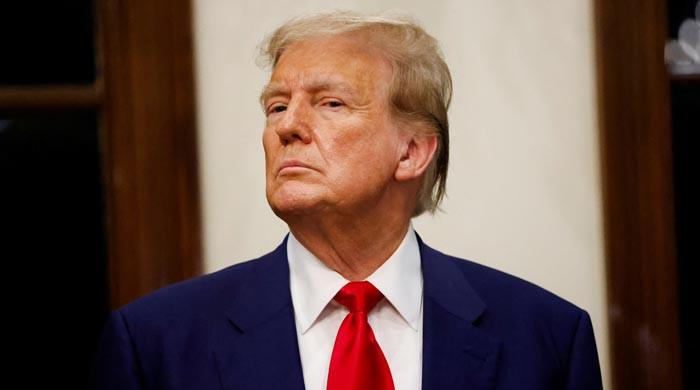
Major Announcement from the U.S. Following Trump's Nobel Peace Prize Setback
In a surprising turn of events, former President Donald Trump has faced a significant setback after failing to secure the Nobel Peace Prize this year. The accolade was awarded to Venezuelan opposition leader Maria Corina Machado, a decision that has sparked criticism and further discussions about the dynamics of U.S. foreign policy and international relations. In light of these developments, the White House has made an important announcement regarding future strategies and initiatives.
The Nobel Peace Prize Controversy
The Nobel Peace Prize is one of the most prestigious awards in the world, recognizing individuals and organizations that have made extraordinary contributions to peace efforts. This year's decision to honor Maria Corina Machado, a prominent figure in the Venezuelan opposition, has raised eyebrows, especially among Trump supporters who had anticipated a different outcome.
Machado has been a vocal critic of the Venezuelan regime and has worked tirelessly to promote democracy and human rights in her country. Her dedication to these causes has garnered international attention and support, ultimately leading to her recognition by the Nobel Prize committee.
In response to her victory, the White House issued a statement expressing disappointment. Officials highlighted the committee's choice as a deviation from recognizing those who have made substantial strides in fostering peace through diplomacy and collaboration. The statement reflects the ongoing debate regarding the effectiveness of U.S. foreign policy in Latin America and the implications of such high-profile recognitions.
Implications for U.S. Foreign Policy
The announcement following Trump’s setback signals a pivotal moment for U.S. foreign policy, particularly in relation to Latin America. The Biden administration, which has adopted a different approach compared to its predecessor, is expected to reassess its strategies. Key areas of focus may include:
1. Strengthening Diplomatic Ties: The U.S. may seek to bolster relationships with democratic movements in Latin America, offering support to leaders like Machado who are fighting against authoritarian regimes. This could involve increased diplomatic engagement and economic support to promote stability in the region.
2. Human Rights Advocacy: The White House might ramp up its commitment to human rights advocacy, emphasizing the importance of democratic values and freedoms in its foreign policy agenda. By doing so, the U.S. aims to position itself as a champion of global democracy, countering authoritarian influences.
3. Regional Stability Initiatives: In response to the ongoing crises in Venezuela and other Latin American countries, the U.S. could initiate new programs aimed at fostering regional stability. This may include humanitarian aid and support for refugee populations affected by political turmoil.
4. Public Diplomacy Campaigns: Recognizing the power of public perception, the administration may launch campaigns to inform and educate the American public about U.S. involvement in Latin America. This could help garner support for foreign policy initiatives and counteract negative narratives.
The Broader Context
Trump’s loss in the Nobel Peace Prize race is more than just a personal setback; it reflects broader geopolitical trends and the evolving landscape of international relations. The recent recognition of Machado emphasizes the growing importance of grassroots movements and local leaders in shaping the future of their nations.
As the U.S. navigates these complexities, it faces the challenge of balancing its interests with the aspirations of people seeking democratic reform. The outcome of the Nobel Peace Prize could serve as a catalyst for a more nuanced approach to U.S. foreign policy, particularly in regions that have historically been impacted by American interventions.
Looking Ahead
As the situation unfolds, it will be crucial for the Biden administration to remain adaptable and responsive to the changing tides of international politics. The announcement following Trump’s setback could pave the way for new strategies that prioritize collaboration and support for democratic movements worldwide.
As the world watches, the U.S. has an opportunity to reaffirm its commitment to peace, democracy, and human rights. The focus should not only be on political accolades but on tangible actions that create lasting change in the lives of people striving for a better future.
FAQs
1. Why did Donald Trump not win the Nobel Peace Prize?
- The Nobel Peace Prize was awarded to Maria Corina Machado for her efforts in promoting democracy and human rights in Venezuela. The decision reflects the committee’s recognition of her work against authoritarianism.
2. What has the White House said in response to the Nobel Prize announcement?
- The White House expressed disappointment over the decision, criticizing the Nobel Prize committee for not recognizing individuals who have significantly contributed to peace through diplomacy.
3. How might this setback affect U.S. foreign policy?
- The U.S. may reassess its foreign policy strategies, focusing on strengthening diplomatic ties, advocating for human rights, and supporting regional stability initiatives in Latin America.
4. Who is Maria Corina Machado?
- Maria Corina Machado is a Venezuelan opposition leader known for her activism against the authoritarian regime in Venezuela and her efforts to promote democratic reforms.
5. What does the future hold for U.S.-Latin America relations?
- The future will likely involve a more engaged U.S. approach that prioritizes support for democratic movements and aligns with the aspirations of Latin American countries striving for reform.
Tags
World
